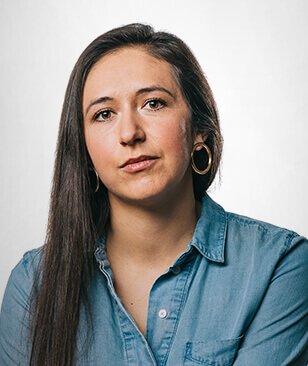
ALMA | Denver, CO
“I wish we’d let him know he was not alone in his struggles.”
My brother Ola passed away when he was 22 from opioid addiction. We had a traumatic childhood, and starting at an early age, substances were his escape, especially prescription pills. His addiction became noticeable in high school. Things had always come easy for him–whether it was sports or studies–but then he got a DUI, and my family struggled to figure out how to support him. We pressured him to get sober, which I think made him feel a lot of shame. After the DUI, I was worried most about him getting arrested or going to jail and how that might impact his future. This was before the whole opioid crisis really came to light; I never considered that my brother might lose his life to opioid addiction. And when his obituary omitted that it was an overdose, I had a lot of grief, but also shame about it.
We were part of a tight-knit community, and I remember a teacher who was well-respected coming up to us a few months after Ola passed and laying down all this shame and hate about my brother, saying he was an example of how not to live. It was very upsetting and unfair to his memory, people judging him and our family without understanding addiction at all. In hindsight, I think we could’ve done more to reduce the shame my brother was feeling. I wish we’d let him know he was not alone in his struggles, and that regardless of whether he hurt people or let himself down, we could fight through it and find him compassionate, non-judgmental care.